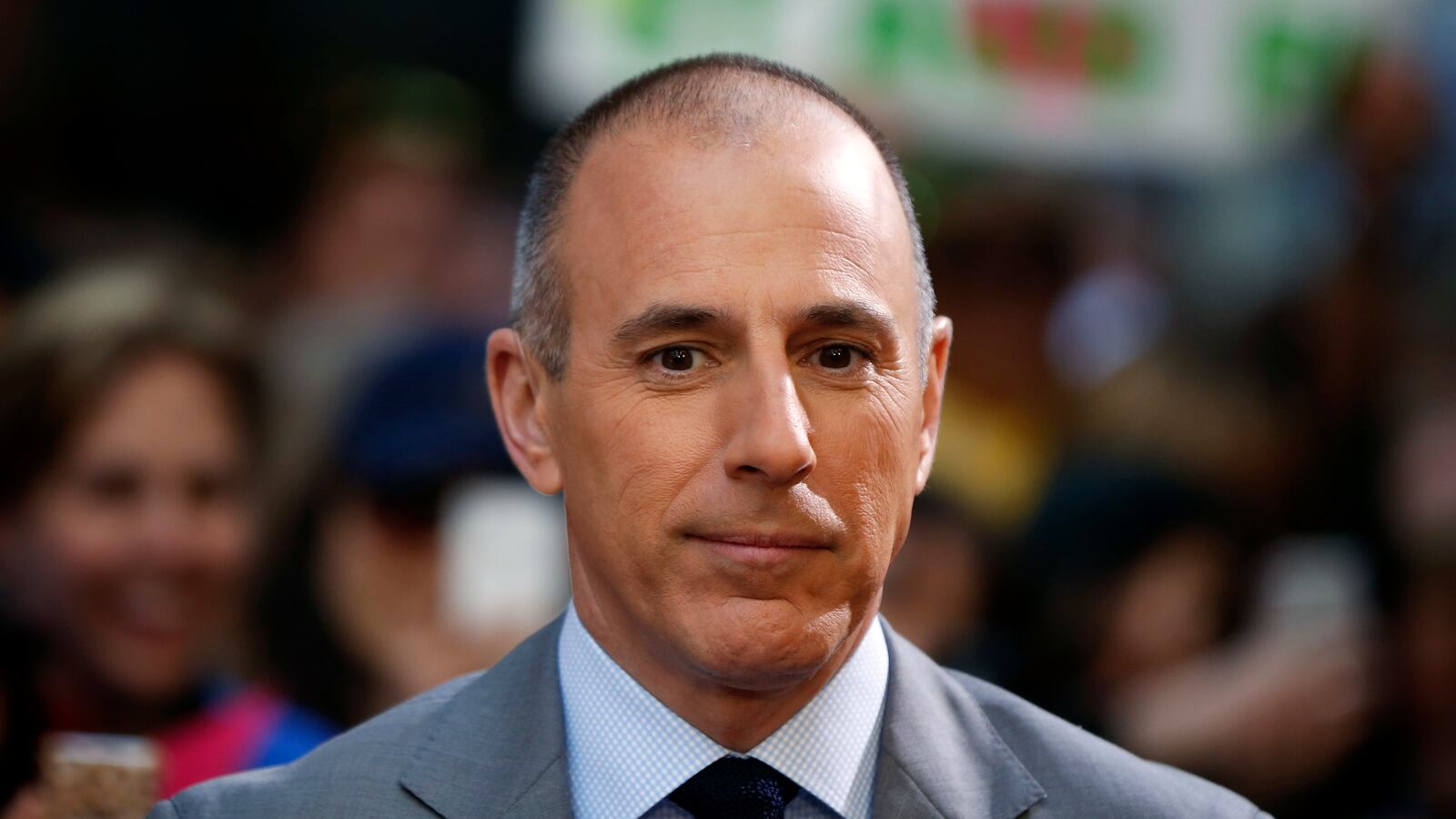It’s the oldest trick in the book: dump a piece of embarrassing news late on a Friday night and hope people will forget about it over the weekend. It’s highly likely that’s what NBC’s strategy was when it had Rachel Maddow announce what sounded like a release of former employees from sexual harassment non-disclosure agreements. But if Comcast/NBC execs think this will bury the scandal, they have miscalculated: It’s only opening the floodgates to more questions.
The late-Friday-night announcement said, “Any former NBC News employee who believes that they cannot disclose their experience with sexual harassment as a result of a confidentiality or non-disparagement provision in their separation agreement should contact NBCUniversal and we will release them from that perceived obligation.”
Reporters immediately jumped on this with questions, and here are some they should be asking:
Why is NBC making victims, who have already endured trauma, come crawling on their hands and knees to ask the company to release them from confidentiality agreements? Play out the scenario: a woman with no representation or money calls the company and asks, “Will you let me speak?” NBC then tells her to cough up all the information she has. Then what happens? Does the company just say, “You’re free to talk”? Or do they retain the right to deny her—or stipulate that she can talk about x but not about y? This seems to be evidence that the company is re-traumatizing victims and still trying to keep them under its thumb. How many women are really likely to volunteer for this cattle call?
If NBC genuinely wants to root out the harassment and cover-up problem, it should issue a blanket statement automatically allowing everyone with a secret agreement of any type involving NBC/MSNBC to speak freely and publicly about harassment, retaliation, and tangential gender-based issues. Importantly, the statement should release ALL current and former employees AS WELL AS individuals related to them. Because there are people still inside the company, not just former staffers, who need and want to speak.
Furthermore, a declaration from NBC should cover all secret documents, not only NDA’s relating to separation agreements. Companies like NBC frequently hide NDAs by calling them something else, such as “confidential information agreements” or “sensitive information agreements.” They all bar victims and others from providing potentially explosive information about NBC/MSNBC execs and on-air talent. And importantly, a blanket release should allow any individual to speak publicly about information not just regarding sexual harassment, but also gender harassment, retaliation, silencing and cover-ups. Because the rot at NBC is not just confined to sexual misconduct; it’s the protection and enabling of perpetrators and the backlash against victims or anyone who dares to complain.
Then there is the nagging question: If NBC is suddenly deciding to offer victims the chance to maybe speak out, isn’t this a backdoor admission that it does, in fact have secrets it is hiding? Why, then, does parent company Comcast still refuse to open an investigation using independent, outside counsel—when NBC Universal has just now indicated there is something to investigate?
While reporters ask these hard questions, Silence Breakers Alliance is pledging to assist any current or former NBC employee who wishes to provide information about the years-long scandal at the company. It will be held in strictest confidence; we can be reached through our website, silencebreakersalliance.org.
Linda Vester was an anchor and correspondent for NBC News and Fox News Channel. In 2017 she publicly accused NBC’s Tom Brokaw of sexual harassment—Brokaw has publicly denied the allegations. Vester founded Silence Breakers Alliance, a foundation to financially support efforts to end harassment in the workplace.







